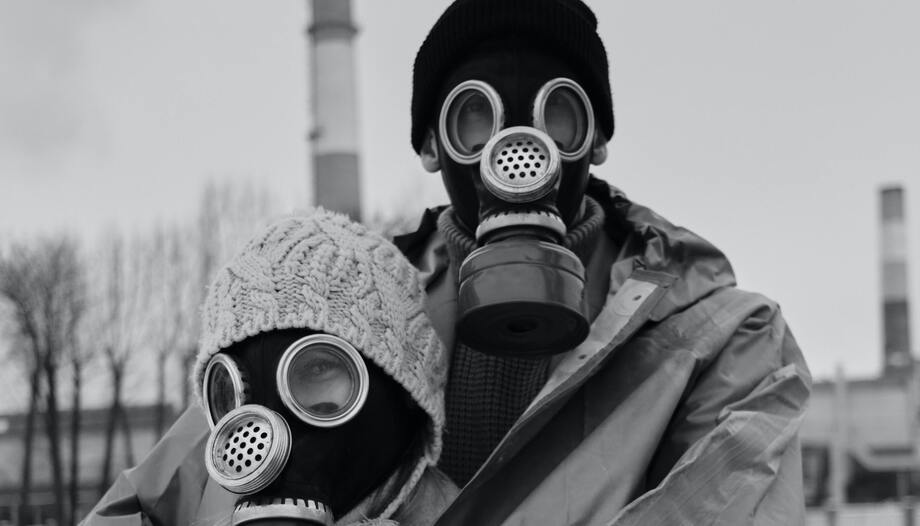There are still those who think that the Gospel message is based on the discourse of fear: "Believe or you will be condemned". Frankly, I do not believe that fear produces sincere conversions. If anything, a double standard. This is what is happening today with certain ecological discourse.
It was only a few days ago when I was surprised by the news of the launch of a successful video game whose main message is that "we are the great threat to nature". Surely the intention of the creators of the game is the best, trying to make the new generations aware of the importance of caring for creation. An appeal that the Church has been joining for decades, certainly with the social magisterium of recent popes and, more extensively, recently, with the encyclical Laudato Si' of Francis. However, I am concerned about the fact that the care of the planet is presented to young people as a struggle against the human being, a kind of monster to be exterminated. By saying that we are the great threat to nature, we are leaving humanity out of it, as if we men and women were not, in fact, the most marvelous beings that have ever existed on the face of the earth, the most beautiful, improbable and incredible work that the stardust of which we are made has ever produced. Capable, yes, of evil, but infinitely more of good.
Protecting nature would mean saving, first and foremost, its greatest value: the human being. Today, however, the human species is worth less than many others. Governments subsidize both plans for the conservation of animals and plants and practices for the elimination of human lives (precisely in their most fragile stages). Feelings of solidarity with abandoned pets are promoted and the social abandonment of millions of people living in subhuman conditions is silenced, when they are not blamed for existing.
Returning to the discourse of fear in order to evangelize, it must be said that of course hell exists and of course we can condemn ourselves; but I do not know of any Christian who has come to the faith fleeing from nothing, but attracted by a message, seduced by a truth that he sees confirmed in his heart, in love, in short, with a Person: Jesus Christ. As the wise Benedict XVI reminds us in Deus Caritas EstJohn the Evangelist "offers us, so to speak, a synthetic formulation of Christian existence: 'We have come to know the love that God has for us and have believed in him'". A few verses later, the text reminds us that "there is no fear in love, but perfect love drives out fear, because fear has to do with punishment; he who fears has not attained to fullness in love".
Those who call themselves Christians only out of fear of punishment have not discovered the greatness of love. The more so, will try to "be good" in an exercise of voluntarism far removed from the disinterested response to grace to which the Lord invites us. The lesser will try to keep up appearances with a double life, limiting himself to keeping clean what his mother-in-law sees, as if God could not know what we hide under the carpet.
To the prophets of calamity who use "environmental fear" against human beings, I would invite them to see that the climate emergency is not going to disappear no matter how much we flagellate ourselves while playing video games. A sector, by the way, considered as one of the main contributors to global warming, since its high energy consumption causes massive CO2 emissions into the atmosphere. In the U.S. alone, the energy consumed by video games is equivalent to the emissions of 5 million cars. In other words, double standards.
How then to respond to the "urgent challenge of protecting our common home" that calls for us to Laudato Si'? Well, not so much with apocalyptic threats or speeches against man, but in favor of man; promoting not an unbridled and unsupportive flight, but a true "ecological conversion" as requested by John Paul II. A conversion by attraction that passes through falling more and more in love with human beings, especially the weakest, leading us to an ecology that is not pharisaical but integral. We care for the planet because we want to care for the life of our brothers and sisters in this and future generations.
It is worth recalling the words of John XXIII in his opening address to the Second Vatican Council when, in the face of those "who are always ready to announce unfortunate events, as if the end of time were imminent", he launched a message of hope, recalling the action of Providence that acts "above the very intentions of men", a reality that we discover "when we consider carefully the modern world, so busy with politics and economic disputes that it no longer finds time to attend to questions of the spiritual order".
And the fact is that we are stardust, yes, but spiritual.
Journalist. Graduate in Communication Sciences and Bachelor in Religious Sciences. He works in the Diocesan Delegation of Media in Malaga. His numerous "threads" on Twitter about faith and daily life have a great popularity.








